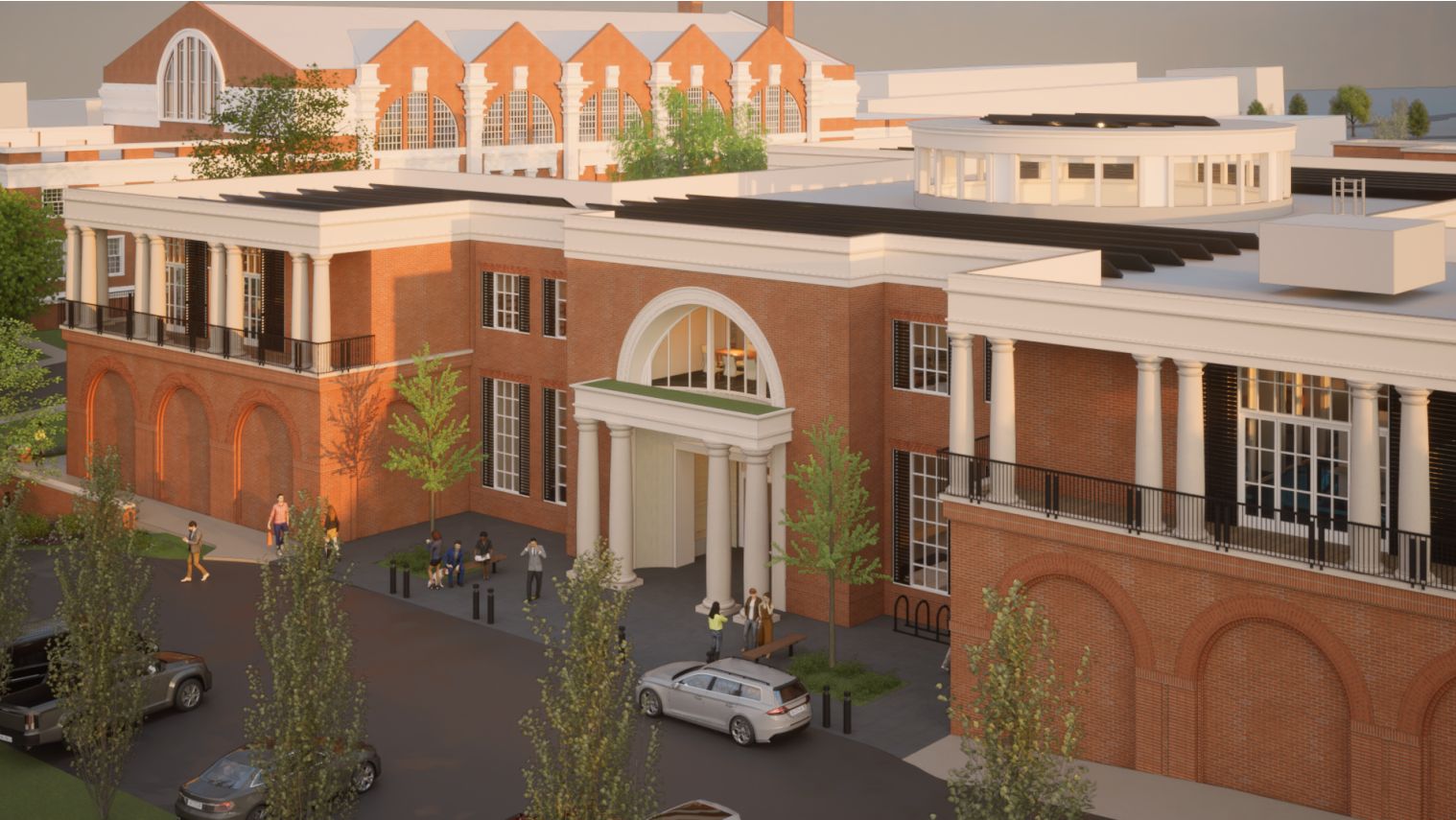Over a dozen Charlottesville residents have filed suit against Charlottesville City Council and the city of Charlottesville against the September 19 approval of a special use permit for a multifamily structure at 2005 Jefferson Park Avenue. (read the complaint)
“City Council’s authorization of the SUPs permits the construction of a building that will diminish the quality of life of all the Observatory Avenue and Washington Avenue plaintiffs in ways not shared by the general public and compromises their health, safety, and general welfare in a variety of ways,” reads paragraph 27.

The permit allows an increase in density under existing zoning for a total of 119-units as well as an increase in building height from 45 feet to 75 feet. Council made their approval after developer Aspen Heights agreed to increase the amount of funding they would contribute to the city’s affordable housing fund from $500,000 to $1 million.
The fourteen plaintiffs are acting as their own counsel and argue that the city failed to comply with Virginia code for zoning ordinances as well as city and state rules on special use permits. All live on either Observatory Avenue, Washington Avenue, or other nearby streets.
“Authorization of these [special use permits] short circuits the rezoning process,” reads a section of paragraph 21 of the complaint. “It undermines the ongoing deliberative, community-collaborative rezoning process to which the City is committed.”
That refers to the city’s ongoing Cville Plans Together process, which has seen the adoption of an affordable housing plan as well a new Comprehensive Plan with a revised Future Land Use Map intended to inform a future zoning ordinance which is not yet complete.
“The applicant justifies their request for increased height and density with reference to the [Future Land Use Map], as though the [Future Land Use Map] were already accomplished fact,” paragraph 21 continues.
Paragraphs 22 points out the staff report for the April 12, 2022 Planning Commission public hearing stated that “the scale and density of the development is not harmonious with the existing patterns within the neighborhood” in conjunction with the city’s entrance corridor review guidelines.
However, paragraph 23 indicates the Planning Commission’s public hearing was delayed to May 10 and the staff report was altered, despite an identical application.
“The revised report of April 27, 2022 stated: ‘No adverse impact on E[ntrance]C[orridor]; The impacts of increased height can be adequately mitigated by application of the design guidelines and addressed during the required ERB design review,’” reads paragraph 23. “No explanation was given for the change.”
The Planning Commission voted 4-3 to recommend the approval on May 10 and Council voted 4 to 0 to approved the permit on September 19. The complaint for declaratory judgment was filed on October 19, just in time to file an appeal in court.

There are eleven counts in all. The first one states that Council failed to consider the health, safety and welfare of existing residents.
“Four of the plaintiffs on Observatory Avenue are over the age of 65 and are concerned that sudden health problems will require ambulance transport to the hospital,” paragraph 27 continues. “Both the bustle of construction and increased traffic when the construction is finished will compromise ambulance access. Additionally two of the plaintiffs on Observatory Avenue suffer from asthma and would be harmed by the dust and fumes of demolition and construction which are projected to take 18- 24 months, as stated by the architect at the December 7, 2021 community meeting.”
Read the rest of the complaint to learn more. (download the complaint)
A city spokesman confirmed that the city has been served with this lawsuit but has not yet responded.
Council and the city are already facing a lawsuit related to the adoption of the Comprehensive Plan filed by a group of plaintiffs who filed anonymously. Charlottesville Circuit Court Judge Claude Worell threw out three of the four counts in late August but did agree to hear further arguments about whether the city gave sufficient notice for the November 15, 2021 vote to approve the plan and whether the term “updated density” was adequately explained.
There’s another open land use case that remains active. Cabell Marshall of Stribling Avenue sued City Council in May over the rezoning of 240 Stribling Avenue this past April, as I reported at the time. The city responded with a motion asking seven items to be added to the record for the case (motion craving oyer) as well as a demurrer seeking dismissal of the case.
“The Rezoning Decision is a legislative action of the City Council that is presumed valid, and a court may not alter or invalidate the legislative action absent ‘clear proof’ that the action is unreasonable, arbitrary, and bears no reasonable relation to the public health, safety, morals, or general welfare,’” reads the introduction to the demurrer. “The Complaint does not state a cause of action against the City, and fails to state facts upon which the relief granted can be granted.”
Before you go: The time to write and research of this article is covered by paid subscribers to Charlottesville Community Engagement. In fact, this particular installment comes from the November 7, 2022 edition of the program. To ensure this research can be sustained, please consider becoming a paid subscriber or contributing monthly through Patreon.














3 thoughts on “Lawsuit filed against Charlottesville City Council for 2005 JPA permit”